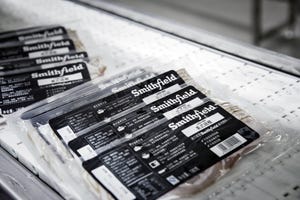January 11, 2016

Since its introduction, the CRISPR-Cas9 technology has sparked a revolution in research laboratories across the world, changing the pace of agriculture research. Scientists are able to tackle big health obstacles in humans and other animals quicker with this precise genome editing tool, allowing them a cost-effective way to efficiently target, edit, modify and regulate genomic sequencing.
Since its introduction to the world three years ago by scientists, the CRISPR-Cas9 is used as a method to slice potential disease-causing genes and replace with new ones. For the pork industry, this breakthrough technology led to a way to confront the porcine reproductive and respiratory syndrome virus that has haunted the industry for years, costing massive amounts of money, pigs and emotional stress.
Each week, more and more discoveries utilizing this gene-editing technology are announced in mainstream news outlets, grabbing the attention of the general public. While this gene therapy is praised for treating inherited disease for humans, the same revolutionary technology used for invading viruses in food animals — such as the PRRS-resistant pigs — is feared with the loudest voices criticizing the advancement in the same arguments used against GMO crops.
In reality, this gene editing is just mimicking natural evolution by knocking out the ability of the virus to infect the pig. As long-time PRRS researcher Bob Rowland says if we wait 10,000 years then this would naturally occur. This is exactly how animals become resistant to things. They are exposed, mutations form and through selection they become resistant. The CRISPR-Cas9 technology has only accelerated the natural process. Rowland agrees that no one wants food that kills us. This is not “Frankenfood.” At the end of the day, this makes the pigs healthier and in some respect creates opportunities to protect the public by applying the technology to other viruses such as swine influenza.
Personally, I find it interesting that as a society we celebrate advancement in human medicine but quickly reject the same exact science in food research. When all's said and done, the CRISPR-Cas9 technology is a scientific tool that changes the way scientists work. Just like a microscope changed the way scientists from previous generations functioned. Agricultural researchers are using this tool to understand how a gene functions, fix gene mutations and lead to solving real world problems like a virus that has killed millions of pigs prematurely over the years.
Facing challenges is not a new concept for the world of agriculture. In fact, together the industry rolls up its sleeves and faces some pretty large problems each and every day that would have the average person weak in the knees and throwing in the towel. While I am a big supporter of the devil's advocate role as a check-and-balance, I think it is equally wrong to quickly dismiss scientifically sound advancement and technologies by fearing change and the unknown.
Food security is a global problem and we are going to have to address problems that limit food production. If natural gene editing can “knock-out” the Goliaths of food animal production while sustaining a safe food system then we should be its biggest fan and supporter.
You May Also Like


